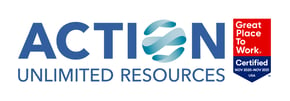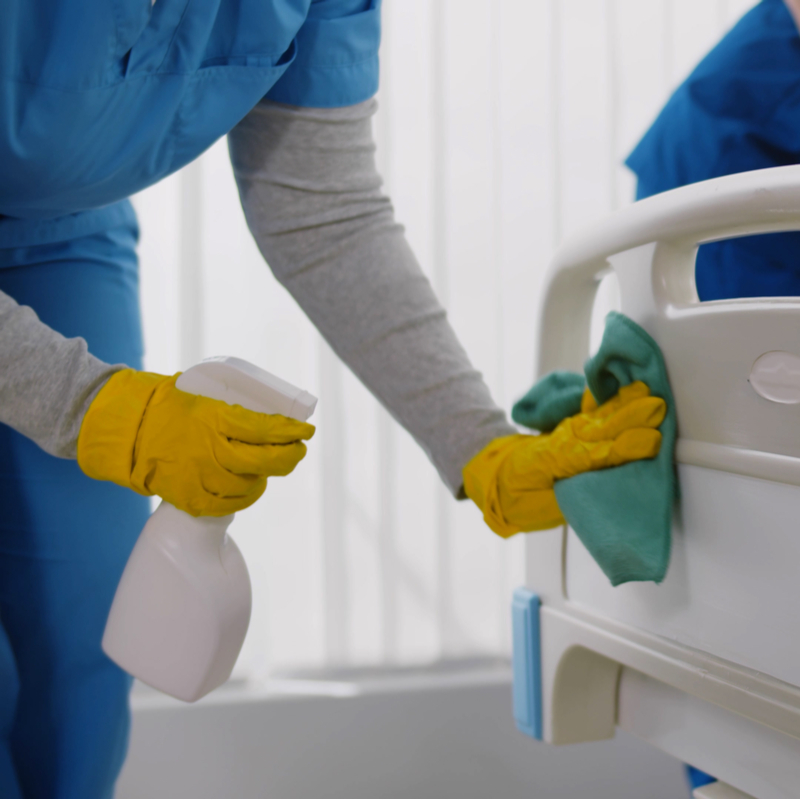Even before the pandemic, hospitals across the United States fought a fierce battle with keeping viruses, bacteria, parasites, and even mold at bay. The struggle with COVID-19 still wages on, and everyone from the janitorial staff, hospital administration, doctors, and nurses must protect themselves and patients from a potentially deadly virus.
Develop a Plan to Fight This War
Although the virus that causes COVID-19 spreads from person to person through respiratory droplets, when people cough, sneeze, or talk, a person in proximity may contract the virus this way and through contaminated surfaces. The virus lands on a surface, and people can become infected if they touch those infected areas then wipe their nose, mouth, or eyes with their unclean hands.
Since COVID-19 infect others so rapidly, national and state government agencies released guidelines explaining how hospitals can keep COVID-19 at bay.
The most reliable way to prevent infection from surfaces is to wash hands or use hand sanitizer regularly. Hospitals, senior care homes, rehabilitation centers, urgent care, and other medical facilities need an action plan and suitable disinfectants to kill COVID-19 and other viruses.
Rules had to be set regarding everyday use areas such as hospital rooms, bathrooms, hallways, examining rooms, and other areas. Also, hospitals need to have the right cleaning products on hand to keep their staff and patients protected. Action Unlimited Resources provides medical facilities of any size with what they need to clean a potentially infected area properly.
The next factor is how often a hospital should clean and disinfect an area.
Create a When and Where to Disinfect Schedule
If you can confirm that no one infected with COVID-19 has entered a particular space, cleaning once a day is usually enough to maintain a healthy environment sufficiently. However, it’s known that a person may not show symptoms and yet still carry the virus. Depending on how many people move through your facility and how many vulnerable patients are within a location, you may want to consider a more stringent routine.
According to the CDC, you should consider these factors on how often you should clean and disinfect:
- Shared spaces in a high traffic area
- High transmission of COVID-19
- Low vaccination rates
- Infrequent use of other prevention measures (wearing masks and hand washing)
- A high occupation of people who fall into the high risk and vulnerable category for catching COVID-19
If a sick person or someone tested positive for COVID-19 in your facility within the last 24 hours, you should clean and disinfect the contaminated space.
Products like the EPA’s List N disinfectants kill viruses like COVID-19. Looked for ready-to-use sprays, concentrated cleaners, and wipes that allow you easily clean patient monitoring equipment, transport equipment, floors, bed rails, and other commonly touched surfaces.
The EPA compiled a list of recommendations on how to effectively clean surface areas:
- Routine cleaning with soap and water removes germs and dirt from surfaces.
- Utilizing the EPA’s list of disinfectants kills any remaining germs on surfaces, further reducing any risk of spreading the virus.
- Do not mix cleaning and disinfection products. Doing so will cause fumes that may be toxic fumes to inhale.
- Wear appropriate gloves or personal protective equipment (PPE) for the chemicals you clean and disinfect.
How Often Should a Hospital Room Be Cleaned?
Before the pandemic, hospitals cleaned each area to prevent the spreading of infectious diseases. COVID-19 raised the stakes higher since a person can easily pass a virus to another person in the same vicinity.
The CDC suggests breaking down your cleaning plan into categories based upon the risk of pathogen transmission area.
The risks include contamination probability, the vulnerability of each patient, and the potential for exposure to the virus. Any location that has direct contact with patients or any hospital staff should be considered a high-risk area.
Make it a habit to clean all hospital rooms and equipment to your hospital’s guidelines. Keep your storeroom stock with what you need to keep your patients, hospital staff, and visitors safe.
Action Unlimited offers a synchronized system that offers 24/7/365 days a year protection of surfaces and air to prevent viruses from spreading. Besides finding the best products, we offer our expertise to provide advice, direction, and strategic solutions for your cleaning needs.



Enjoy this blog? Leave a comment or ask a question!